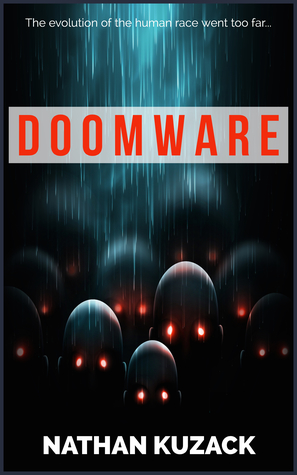More on this book
Kindle Notes & Highlights
The homogenisation of mankind they had called it, or the Dorian Gray-ing of mankind, implying that somewhere there were billions of portraits slowly withering away while their subjects never aged a day.
By the time anyone realised the scale of what was happening it was too late. There was no stopping the virus; the brainware in people’s heads, powered by the body’s own bioelectricity, could not be switched off. Mankind had software-engineered its own downfall.
There could be no fame beyond the end of civilisation itself, and now even the most overflowing coffers and the most opulent assets were worth precisely nothing. Thanks to a single virus, wealth and fame were no longer religions, and the rich and famous were no longer gods.
Mankind had been so preoccupied with threats that were natural or environmental in origin – an ice age, an asteroid impact, a runaway greenhouse effect – that an equally formidable danger to the human race had been overlooked. And that danger was the much-vaunted solution to any threat to man’s survival, and the problems of the world in general: technology. The ice would still creep over the earth and the asteroid would still strike and the temperature would still run away, but on a timescale so vast relative to the human experience it was all but
irrelevant. Humanity had always been destined to unwittingly devise its own suicide pact long before any of it came to pass. The irony was that it had been while mankind had been standing at the pinnacle of accomplishment – no illness, pain nor famine, hardly any death or war – that it had failed to see its greatest folly: the technological osmosis that was to lead to an unprecedented, inescapable vale of tears. The evolution to cyberneticism had ended up pushing mankind that essential modicum too far, off the edge of the pinnacle and back down the precipitous drop into nothingness,
...more
time. Mankind had failed to learn from its own destructive track record. After all, it had devised fireworks and turned them into guns. It had discovered the power of nuclear fission and used it fashion bombs. It had invented passenger jets and made missiles of them. It had unlocked the secrets of chemistry and genetics, and used them to make weapons too. And then the final coup de grâce: brainware had been perverted, transformed into the perfect disseminator of a lethal virus, one last titanic mistake from which there could be no recovery. Nature was the only winner. And nature had no morals.
...more
This highlight has been truncated due to consecutive passage length restrictions.
next intelligent species to marvel at, in the same way man had marvel...
This highlight has been truncated due to consecutive passage length restrictions.
other. Through no fault of his own, no sin, yet often he felt the shame of sin as if it were a physical weight bearing down on him, or pulling down on him the way the One Ring had grown heavier and more burdensome on the chain around Frodo’s neck. Only, instead of a Ring of Power, he was the bearer of a disk. A disk that told the rest of the world he would never be one of them.
There had been no race to identify the bug responsible as with previous epidemics. No struggle to locate its point of origin. No burning of the bodies to try and limit its spread (the bodies were too busy fighting each other over mouthfuls of cold flesh). No hope of a vaccine or a cure. The rapidity of the disaster reaffirmed his belief that the virus was a deliberate invention, rather than some freakish accident.


